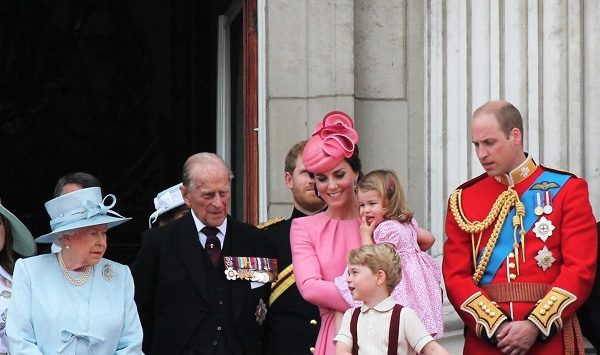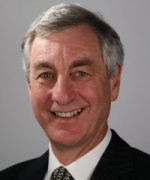Issue Briefs

Britain’s beloved Queen Elizabeth
Michael Binyon
March 6, 2018
On a cold dull day in February 1952, a 25-year old princess came to the British throne on the death of her father King George VI. Queen Elizabeth II, as she became, has now been 66 years on the throne – longer than any British king or queen for the past 1,000 years and among the longest-reigning monarchs in the world.
Popular Monarch
The Queen is now aged 91, and has rarely been so popular. At a time when Britain’s government is floundering and many people have lost faith in politicians, the Queen is seen as an emblem of stability and continuity. She is still visibly performing royal duties, still paying regular visits all around the country, receiving foreign ambassadors and statesmen and holding a weekly audience with the Prime Minister. People born after she came to the throne are already pensioners. Most Britons do not remember any other head of state.
Preparing for a new king
Yet, discreetly, preparations are already being made for her death. Plans for the state funeral have been revised and rehearsed. Newspapers are getting the lengthy obituaries ready for publication. Television is drawing up schedules for morning-to-night coverage of her life and her times. And the Commonwealth, an organization where the Queen has always played a pivotal role and which is close to her heart, is wrestling with the difficult question of who should succeed her.
Who will lead the Commonwealth?
It will not be an easy question to answer. The Commonwealth is not like the monarchy, where the eldest child succeeds automatically. Prince Charles, who will become king when his mother dies, may not be a popular choice to head a body that has gradually drifted away from the British crown, once the official head of state of most of its members. Today’s Commonwealth is a group of 52 different independent nations, mostly English-speaking, that are spread across the globe. They range from large and populous nations such as India, Canada, Australia, Pakistan, Nigeria and South Africa to small islands in the Caribbean and states scattered across Asia and Africa.
Last gathering opened by the Queen
The Commonwealth, largely but not entirely made up of former colonies in the British Empire, has no political power, few common structures, no unified organization and no single political agenda. But it has a dense network of educational, legal, trade and cultural exchanges that bind this grouping together in a common set of democratic values. These links are refreshed every four years, when the Commonwealth heads of government meet for a summit with formal discussions on the agenda and informal talks during a brief “retreat”. They meet in a different Commonwealth country each time, and until now the Queen has always travelled to that country to open the meeting. This year it is the turn of Britain to play host, and next month [April] the Queen will greet all the visitors to London. It is likely to be the last time that she opens a Commonwealth conference.
Inevitably, discreet soundings will be taken during the coming summit on who should succeed the Queen. When she came to the throne, only a few big nations such as Canada, Australia, New Zealand and South Africa were independent, and most still owed some allegiance to the British crown. Two others, India and Pakistan, had achieved independence only in 1947, and became republics rather than keep formal links to Britain. The Queen, seen as a non-political figure, was the obvious symbolic head of the organization. And she in turn has always made the Commonwealth one of her priorities, travelling repeatedly to most of the bigger nations and keeping in close personal touch with many of its leaders. It was said that Nelson Mandela was the only leader who could call her simply “Elizabeth” and who could telephone her whenever he wanted.
States will change their connection with Britain
Much will change when she dies. For a start, several countries that still acknowledge her as their formal head of state – Canada, Australia and several Caribbean nations – are likely to see a new push to drop the connection to the monarchy and declare themselves republics. But there may also be a wish to change the symbolic head of the Commonwealth, instead of asking King Charles III to succeed his mother. Could it perhaps be an eminent Indian, Canadian or Australian? Could it be a rotating head? Or should the Commonwealth function without any symbolic head?
Many more years?
Most people in Britain expect the Queen to continue in office for some years to come. She is remarkably fit for her age. Her mother was 101 on her death. The Queen is still assiduous in reading her dispatches, entertaining overseas visitors and prominent Britons at Buckingham Palace and travelling – especially to race courses, where she indulges her passion for horse racing. For many Britons, she has been in office so long that she has already become a part of history: films, documentaries and descriptions of life in 1952 seem almost unimaginable to today’s younger generation. And a number of high profile plays, films and television series have portrayed the Queen in earlier years, when the historical facts seem so remote that fictional incidents are now freely mixed into the narrative.
First interview
The Queen herself sometimes sees herself as a figure from history. She gave an interview to television a month ago – the first interview she has ever given to any broadcaster or journalist in all her reign – when she looked back on her coronation and described her feelings and the atmosphere at the time. Few Britons were surprised that she gave an interview; most were impressed at the sharpness of both her mind and some of her answers.
A different country
Britain itself has become a very different country – with the immigration of ethnic minorities making it a multi-cultural and multi-faith society. And the monarchy has been skilled in adapting to the changed circumstances. Change is continuous, but also gradual so that there is no visible break from tradition. Almost imperceptibly the monarchy reflects the contemporary values, ideas and make-up of Britain today.
Perhaps a symbol of this is the forthcoming marriage in May of Prince Harry, the Queen’s grandson, to Meghan Markle. Fifty years ago she would have been thought highly unsuitable: she is a divorcee, she is American, she is an actress and she is of mixed race. Today all those qualities would seem to make her a perfect mirror of Britain today. And in a subtle reminder that the Victorian morality that once so sternly governed British society is changing, the Queen invited Meghan to stay at Windsor Castle over the Christmas period with the rest of the royal family. It is fair to assume that she was discreetly allowed to sleep with Harry.
Lighter schedule
Inevitably, given her age, the Queen has now restricted her duties and timetable. She no longer wears the crown and full regalia when opening a new session of Parliament each year. She no longer makes lengthy trips abroad on state visits. She asks Prince Charles or her grandson to hand out medals at the regular investiture ceremonies. And she has turned over a number of routine duties to the younger members of her family.
Serve until the end
But, unlike the royal families in Spain or the Netherlands, there is no question of her abdicating or retiring. As a young princess she made a vow in 1947 during a state visit to South Africa when she was 21, famously saying: “I declare before you all that my whole life, whether it be long or short, shall be devoted to your service”. It has certainly been a long one. And in changing and challenging times for Britain, most people are happy she is still there.
 |
Michael Binyon is a GPI Senior Adviser. He has been an editorial writer, columnist and foreign correspondent for The Times (of London) since 1971. For 15 years he was based overseas, reporting from Moscow, Washington, Bonn and Brussels, before returning to London to be diplomatic editor in 1991 and becoming the main foreign editorial writer in 2000. He retired from the staff in 2009 but still writes for The Times and other publications, and is a frequent broadcaster for the BBC and French, German, Canadian, Russian and Middle Eastern radio and television.
He published “Life in Russia” in 1983, has won two British journalism prizes and was awarded the OBE by the Queen in 2000. The views and opinions expressed in this issue brief are those of the authors and do not necessarily reflect the policy of GPI. |